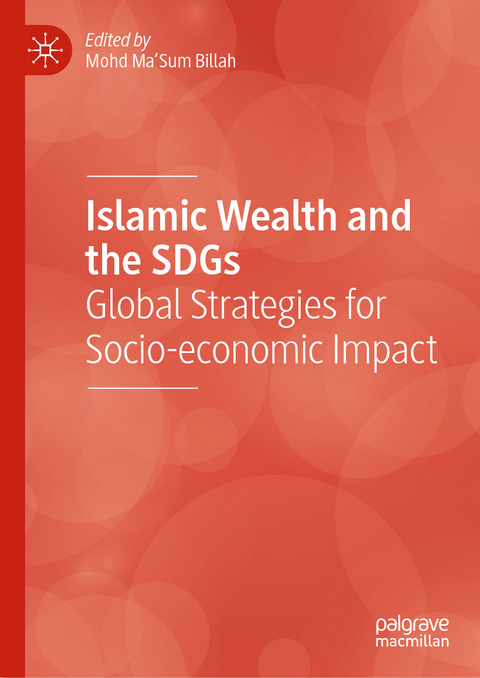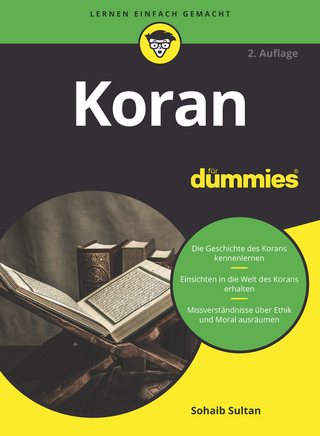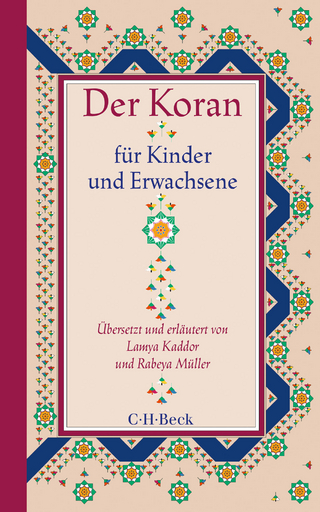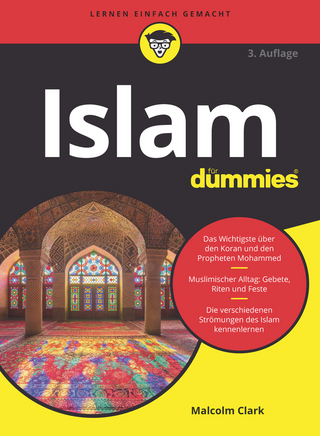
Islamic Wealth and the SDGs
Springer International Publishing (Verlag)
978-3-030-65312-5 (ISBN)
The SDGs, developed by the UN in 2012, focuses on 17 goals for the betterment of humanity and humanitarian causes. Among the core objectives of Shari'ah in Islamic finance is to offer a helping hand, emphasizing the efforts and scope of the SDGs. This book explores how Islamic ethical wealth is structured to contribute to the SDGs and an overall socio-economic impact within the principles of Maqasid al-Shari'ah. Focusing areas such as Islamic micro-finance, wealth inclusion, corporate and agro-Zakat, Awqaf, SRI Sukuk, and green Sukuk, this book will feature contributions from the leading researchers in sustainability and Islamic finance and will be of interest to scholars, researchers, industrialists, NGOs, UNDP and students studying both areas.
lt;p>Mohd Ma'Sum Billah, PhD is a Professor of Finance, Insurance, FinTech, Investment and Capital Market at the Islamic Economics Institute of King Abdul Aziz University, Kingdom of Saudi Arabia. He is an internationally renowned Islamic finance scholar. He has served and contributed to academia and corporate industries for over 20 years providing management, teaching, research and problem-solving, particularly in the areas of Islamic finance and insurance (Takaful), and the Halal standard. Billah has published 36 books and chapters in books as well as over 300 articles in journals and on social media. He has presented at numerous conferences, seminars, executive workshops, and industrial training sessions around the globe. In addition, he has been affiliated with various companies, universities, and financial institutions including central banks, international corporate organizations, governments, and NGOs in his capacity as a member on boards, an advisor, a strategic decision-maker, and a reformer with a strategic solution provider. His areas of interest include Islamic finance and insurance (Takaful), crowdfunding, investment, Awqaf, capital markets (Sukuk), social finance, SDGs, Crypto-currency, and FinTech.
Part I:Chemistry of Islamic Ethical Wealth for SDGs.- 1.How compatible are SDGs with Divine Principles? A Critical Literature Review (CLR).- 2.The Worldview of Islamic Ethical Wealth and its implications for SDGs: The Case of Waqf.- 3.How Islamic Ethical Wealth May Strategically and Technically Support SDGs Plan?.- 4.Shariah, Ethical Wealth and SDGs: A Maqasid Perspective.- 5.Analysis of the Compatibility of SDGs With Development Goals Based on Divine Principles.- 6.Integrated Islamic Social and Commercial Finance to Achieve SDGs.- 7.Urban Sustainability and the Role of Islamic Wealth in Mega-OIC Cities: Implications for SDGs.- 8.Structural Mechanisms for Islamic Ethical Wealth for SDGs.- 9.Baitul Maal wat Tamwil as Integrated Islamic Microfinance Institution to Support SDGs.- 10.How Islamic Social Finance Contribute to the Sustainable Development Goals: an impactful Story of Al-Khidmat Foundation Pakistan.- Part II:How Islamic Ethical Wealth May Strategically and Technically Support SDGs' Schemes?.- 11.Why Does Business Zakat Contribute Insignificantly to Achieving "SDG-1:Ending Poverty" in Nigeria? Evidence from Recordkeeping Practices.- 12.The Role of Islamic Ethical Wealth in Strategically and Technically Supporting 'No Poverty'-SDGs 1.- 13.How Islamic Ethical Wealth May Strategically and Technically Support ' Zero Hunger' Scheme?.- 14.How Islamic Ethical Wealth May Strategically and Technically Support 'Zero Hunger' Scheme?.- 15.Structures of Healthcare Waqf in Indonesia to Support SDGs.- 16.How Islamic Ethical Wealth Manages the risks that threaten 'Good Health and Wellbeing' Mission?.- 17.The Role of Waqf in the Youth of Empowerment to attain the Quality Education in Kano for Sustainable Development Goals.- 18.How Islamic Ethical Wealth May Strategically and Technically Support 'Reduced Inequality' Mission?.- Part III:How is the Strategic Mechanism of 'Zakat' to Support SDGs?.- 19.Zakat on Wealth and Asset: Lessons for SDGs.- 20.Bridging Zakat Impacts toward Maqasid Shariah and Sustainable Development Goals (SDGs), Influence of Corporatization and Experiences on COVID-19.- 21.How far Corporate Zakat May Contribute to Sustainable Development Goals?.- 22.Global Zakat Cooperation Chain to SDGs: How Shall Mechanisms and Master Plan be?.- 23.Not Yet Fully Understood Divine Status of Waqf and its Social Welfare Role.- 24.Analysis of Global Ethical Wealth Based on Maqasid al-Shari'ah: The Case of Waqf.- 25.Forms of waqf funds and SDGs.- 26.Contributions of Waqf Investments in Achieving SDGs.- 27.How Corporate Awqaf Can Support SDGs?.- 28.Cash Awqaf: How It May Contribute to SDGs?.- PART V:How Sukuk Structure May Support SDGs?.- 29.Analysis of Sukuk al-Waqf Structure for Financing BOT Based Development Programs.- 30.Sukuk and SDGs-9 "Industry, Innovation and Infrastructure" in Sub-Saharan Africa: Achievements, Challenges and Opportunities.- 31.How Green Sukuk Structure Contribute to SDGs?
| Erscheinungsdatum | 24.04.2021 |
|---|---|
| Zusatzinfo | XLVI, 646 p. 64 illus., 5 illus. in color. |
| Verlagsort | Cham |
| Sprache | englisch |
| Maße | 148 x 210 mm |
| Gewicht | 1021 g |
| Themenwelt | Geisteswissenschaften ► Religion / Theologie ► Islam |
| Wirtschaft ► Betriebswirtschaft / Management ► Finanzierung | |
| Wirtschaft ► Volkswirtschaftslehre ► Makroökonomie | |
| Schlagworte | Awqaf Model • Green Sukuk • Islamic economics • Islamic ethical wealth • Islamic Finance • Islamic microfinance • SDGs • socio-economic impact • Wealth and Asset Awqaf • Wealth and Asset Awqaf: |
| ISBN-10 | 3-030-65312-9 / 3030653129 |
| ISBN-13 | 978-3-030-65312-5 / 9783030653125 |
| Zustand | Neuware |
| Haben Sie eine Frage zum Produkt? |
aus dem Bereich


